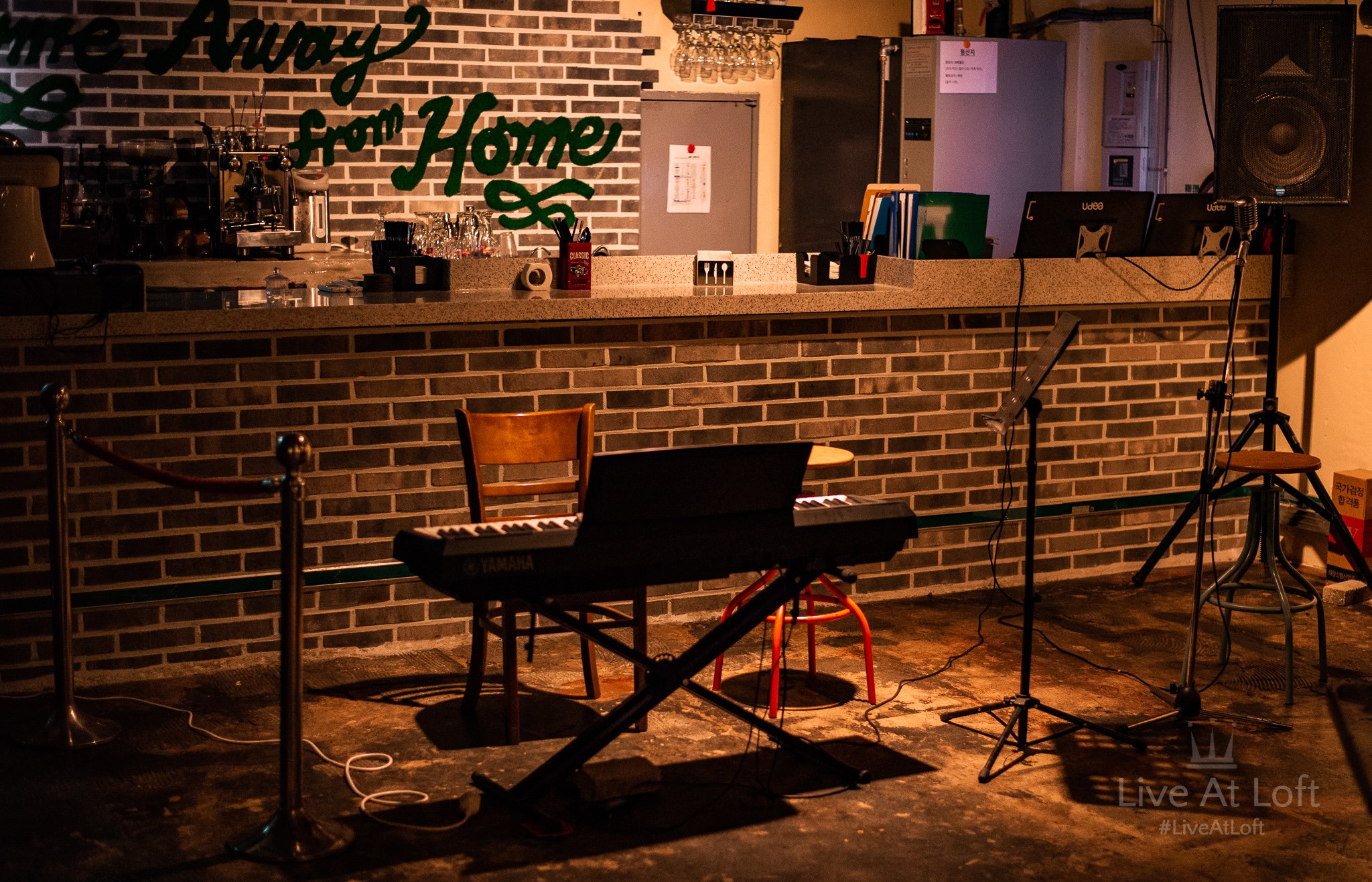Loft 28
The Power of Family
Interview by Melline Galani.
Have you ever tried Jamaican chicken or had the feeling of home away from home? In this issue, Gwangju News presents an interview with the Loft 28 owners, Craig Anthony and Ronald Harford. They are not only an inspiration for other business owners but also the kindest and most positive individuals we have met in a while – and their Jamaican food is amazing. Here is what we talked about.
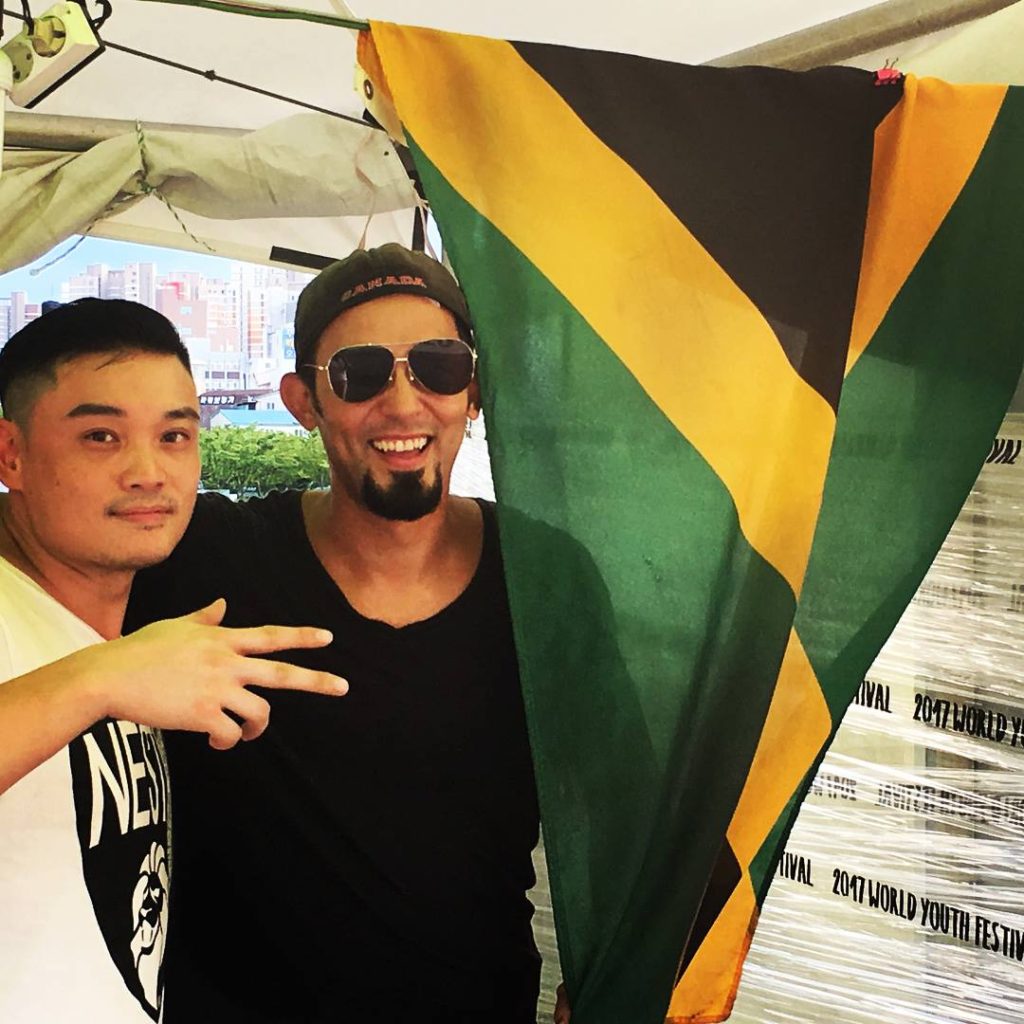
Gwangju News (GN): Thank you for taking time to do this interview for us. First, please introduce yourselves, and tell us about your academic background. Also, please tell us about your first encounters with Gwangju and South Korea.
Ronald Harford: My name is Ronald Harford and I have been living in Korea for eleven years now. It started by looking for new opportunities and a career change, and I discovered teaching English in Korea. That is how I started my life here. Through ten years of teaching, I have been through all steps from kindergarten, private hagwons, and public schools to Chosun University where I am working at present. About my origins, I was born and raised in Venezuela and then moved to Canada. I was lucky enough to have been raised in a bilingual family, as my father is from Jamaica and my grandparents immigrated to Canada. I did my university studies in Florida, U.S.A., and earned an international studies degree. Here in Korea, I completed my academics by getting a master’s in education from a U.S. university, too.
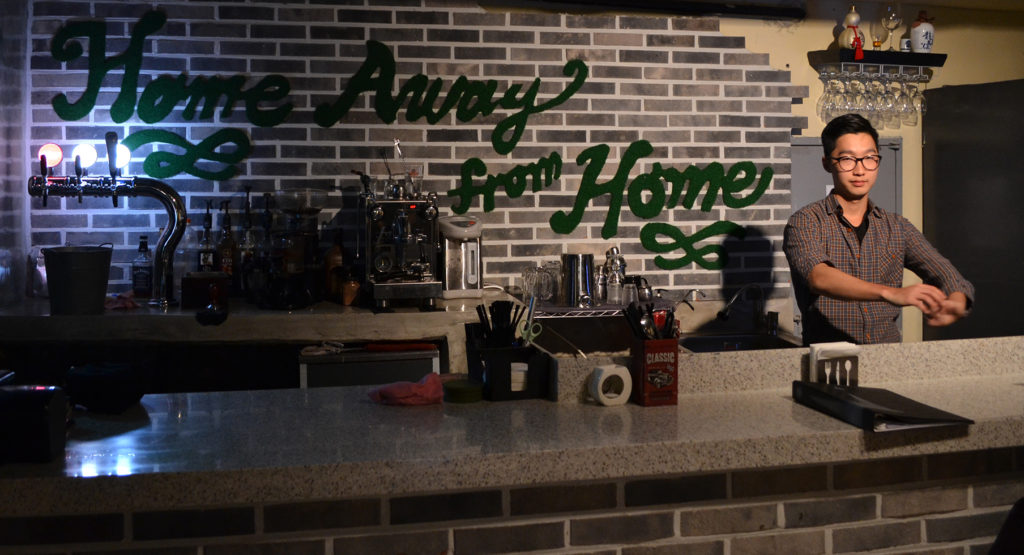
Craig Anthony: I also came to Korea eleven years ago – one month after my cousin, Ron. My first two years, I lived in Busan teaching at private academies there. I also did my studies in Canada and the U.S.A., and I have degrees in accounting and marketing, followed by a master’s in business (MBA).
GN: How long has Loft 28 been in operation?
Craig Anthony: We opened the place together five years ago, and it was mostly as a hobby, as we were both teaching at the time. As time went on and things got busier for us, one of us had to make the sacrifice and make a full-time job of caring for the restaurant, and that person is me.
GN: Starting any business is tough. What were some of the major hurdles you had to overcome and who helped you?
Craig Anthony: During our first five years here, we made so many amazing Korean friends that ran their own business, whether they were cafes, restaurants, clubs, or other types of businesses. We helped them with smaller things such as making a menu in English, and the more we helped the more we realized we could do something, too. Therefore, we discussed and came up with the idea, especially since we used to cook our jerk chicken, which is the Jamaican main dish that we sell now, for many of our Korean friends and they loved it.
The paperwork one must do in order to open a business is not easy, especially for foreigners, but we had our Korean friends that we call “family,” and we joined together to open the business. There are a lot of separate laws and regulations that Korean business owners do not need to follow and the paperwork is extensively more.

Ronald Harford: Since we are not fluent in Korean, it is obvious that we could not have done it without our friends.
GN: Please give us the details of the concept behind the motto, “Home away from home,” and how you came up with it.
Ronald Harford: The concept that we envisioned was to have a place that looked like a home, an apartment where friends are invited to have dinner. That is why we went with a space that looked like a loft, hence the name “Loft.” The first place we had it in was divided exactly to look like an apartment: like a home with a living room, a bar area that looked like a kitchen space, actual beds in the corner for the sitting area, and a library case with books like a day room, so when the people would come in, they would have the feeling of visiting a friend’s house. We also wanted to give that feeling through our service, too. We have always tried to be friendly to our customers, to get to know them. We had a lot of customers that became regulars and kept coming back, and the place had become a friendly environment for them, too. At that point we thought, well, it feels like a home away from home, so that is how the concept was made.
Craig Anthony: We like to say that we do not have customers; everybody is a guest coming to our house. When we chose the name of the place, we wanted it to be like an address (and an address needs a number).The meaning of the number “28” is actually my parents’ birthdays put together: My mother was born in February (2) and my father was born in August (8).
GN: Because of the COVID-19 pandemic, we know many businesses are facing hardships. We know you had to close the business for a while, but you found other methods to “survive.” Please provide some details about that process.
Craig Anthony: Due to our business license, we had to close when the government regulations were enforced. We looked at every option that we had. We noticed that Koreans order food using special apps, but using these delivery apps is quite expensive because not only do you need to pay the delivery people, but you also have to pay for the marketing on a monthly basis. The problem for us was that the delivery companies deliver to a specific area, and we knew that would not work for us because many of our customers are foreigners, and they come from all over Gwangju. Therefore, we had to take a lot of time from our schedules to do the delivery. We do the cooking (fresh to order) and deliver things personally, too. We divided the deliveries by area, doing like Seo-gu one day, Nam-gu one day, and so on. We also try our best so the people get their food warm and fresh. This delivery is the only way for us to survive during these times, but not profit-wise. We know that we can do it because we have been doing it since January, so now we have more expertise with the logistics, too.
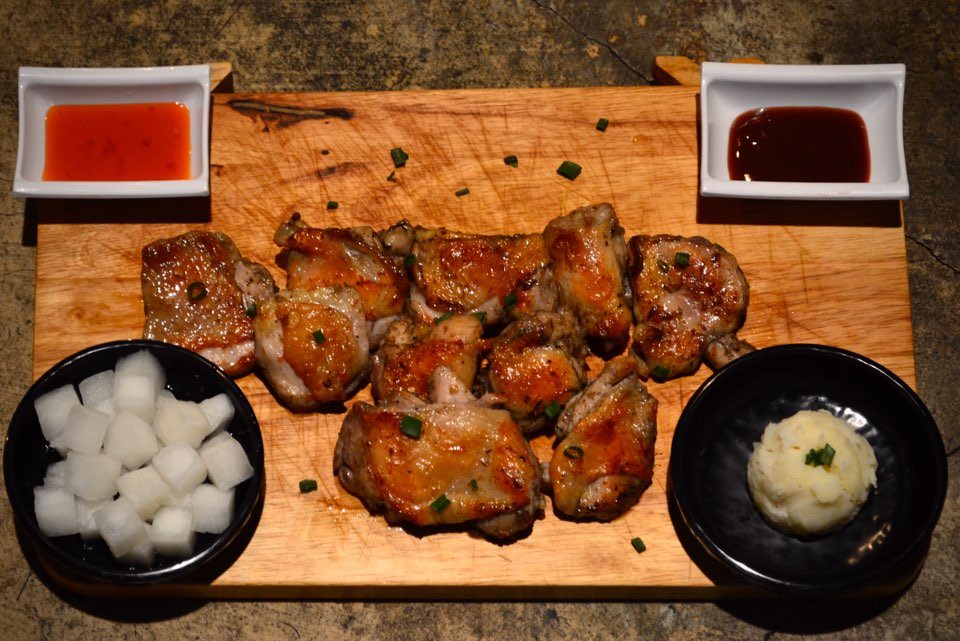
GN: How can people order the Jamaican jerk chicken, especially Koreans?
Craig Anthony: They have to order it from our Facebook page. As I said before, we have been going back and forth over whether we want to join one of the Korean delivery apps to sell locally. For now, if Koreans want to order our chicken, they should either be part of the foreign community, as we promote mostly on foreigner-centered Facebook pages (such as the Gwangju group), or search for the advertising on those groups or our Instagram account. We did investigate Naver as a possibility for ordering, especially since that is cheaper than the apps, but our Korean family told us this service is more prominent in bigger cities such as Seoul and Busan, and not so many people in Gwangju are using it.
GN: How is the chicken delivery side-business going now? Is it still functional or was it just a temporary solution during the closing period?
Craig Anthony: Yes, it is still going on. Since many people prefer to dine at home these days, we provide them the same delicious food at their door. Besides jerk chicken, we also have other Jamaican dishes that we do, such as smoked turkey leg, and we intend to expand our food sides, too.
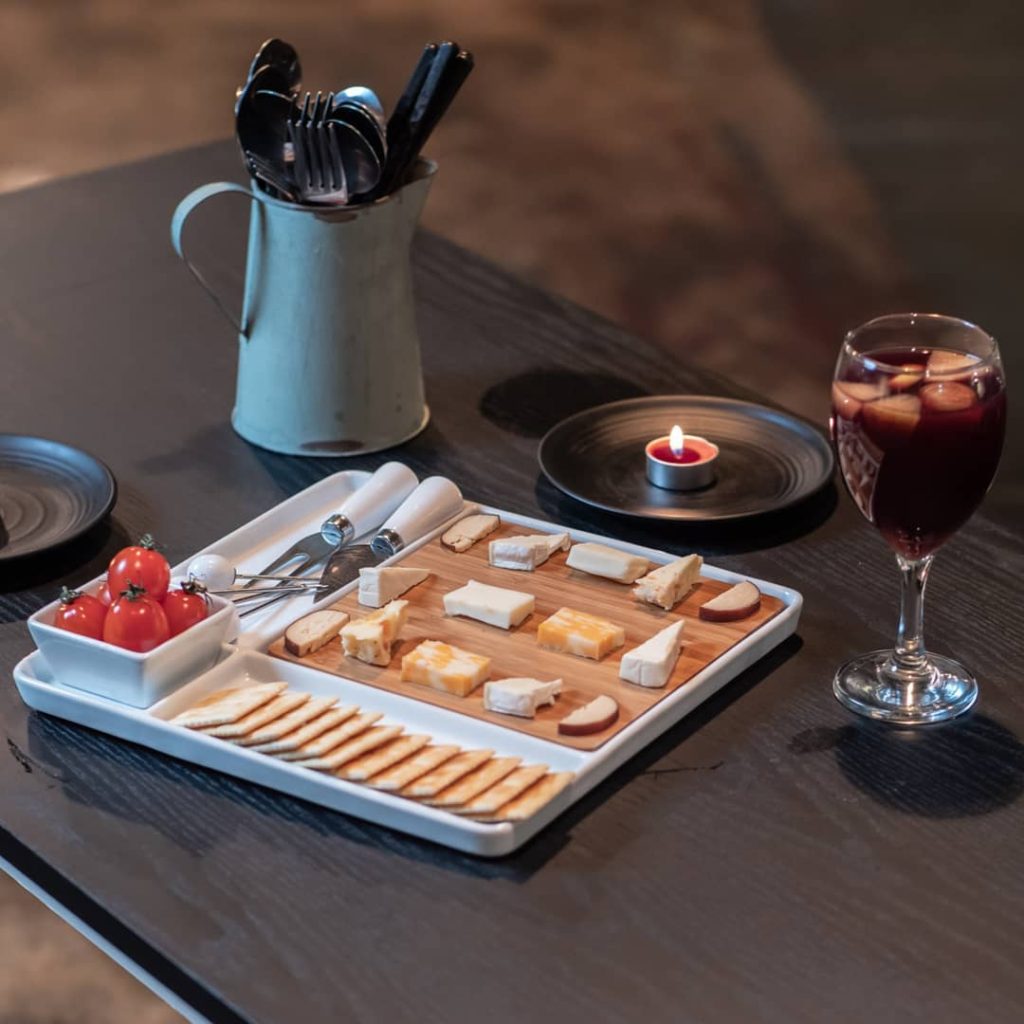
Ronald Harford: And we have maintained the same quality and taste. All the seasoning ingredients come from Jamaica, and we use Craig’s grandmother’s recipe, so the food is really authentic. We have many customers outside of Gwangju some as far as Pyeongtaek and we deliver personally.
GN: Have you gotten any kind of support or subsidies from City Hall during this period?
Craig Anthony: Yes, we did get some subsidies. I think the Korean government has helped us the best it could in this situation. The first time when they helped us, we had to show some proof related to how much we sold during the same period last year compared to this year and, if you qualify for subsidies, you would get the support money. After that, we just received the subsidies without having to submit other documents. Is it enough? It is never enough, but it does help, for sure. And that is why we must do the chicken delivery if we want to survive.
Ronald Harford: We must do whatever it takes if we want to pass this period. We had to cut hours and adjust our schedules so we could budget properly and maintain the business’ profitability, if possible.
GN: Loft 28 has always held fundraisers supporting diverse organizations. Please tell us more about these initiatives.
Craig Anthony: When we do a fundraiser, we choose something that is close to our hearts. One of the fundraisers was for “My House” (우리집), an organization that helps single mothers and young women who suffer from domestic abuse. Being from Jamaica and having seen those things enough, I think it is close to my heart to do something about it. I too was raised by my grandmother, and I have seen things happening in my lifetime. We found out about “My House” from another foreigner and decided to help, but we have done multiple other charities.
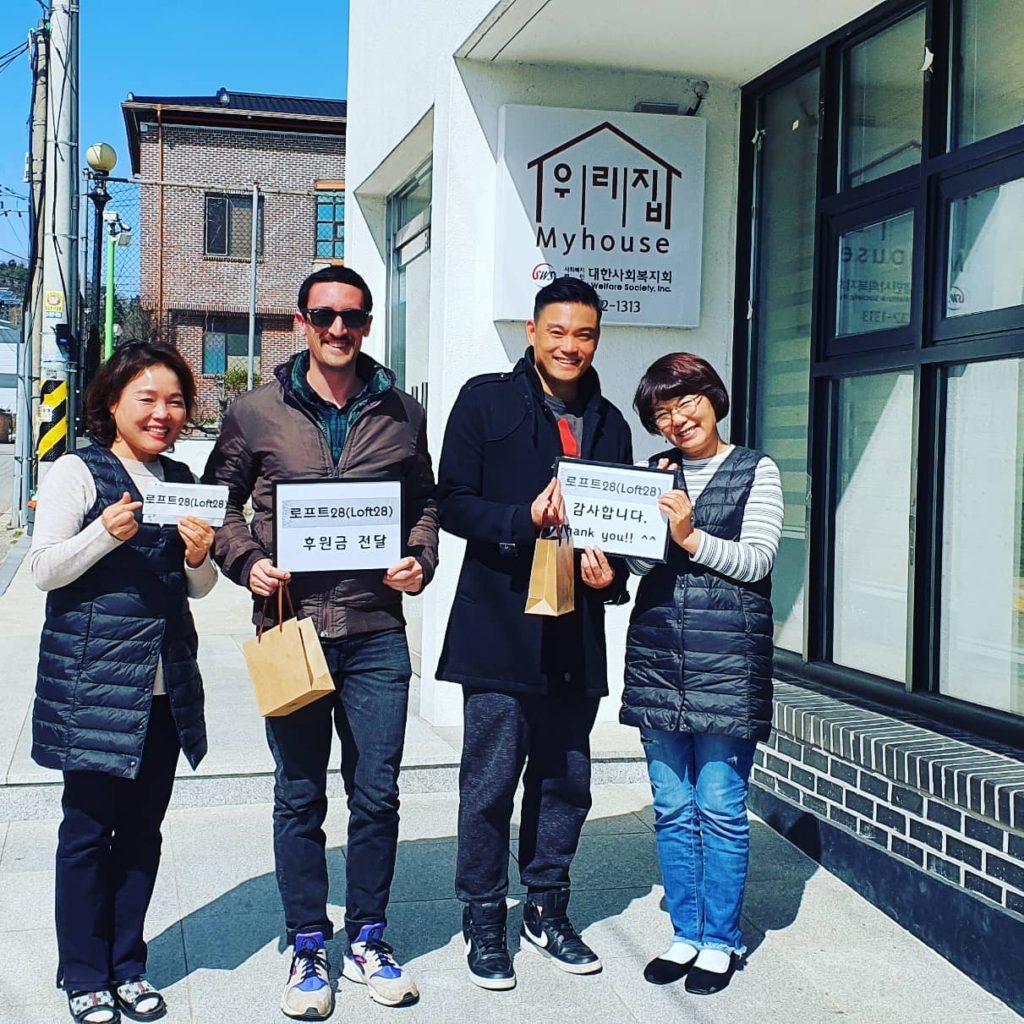
Ronald Harford: From the beginning, we thought we wanted to give back to our community and try our best to help out if we were ever fortunate enough to have a successful business. We have done a few fundraisers for orphanages as well – specifically MDream Children’s Home – lately. I found out about them from a member of my soccer team, since I also play soccer during the weekends. He told me he runs an orphanage that is among the oldest in Gwangju and that he is the third generation to run it. I was so impressed by his stories, so I invited him, telling him that we do fundraisers from time to time. We started to work more closely with him to be able to help out and have held two to three events for them.
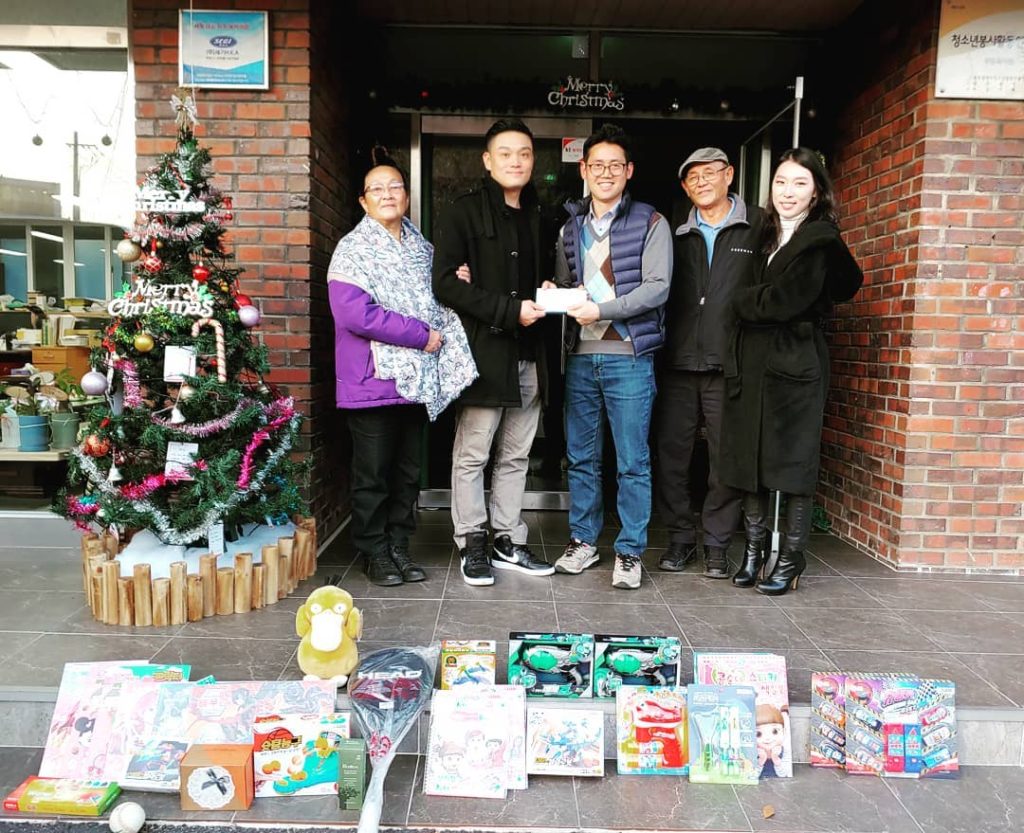
Craig Anthony: The orphanage owner is also a musician, and he and the kids have their own band that performed in our restaurant as well. We also have a singing competition from time to time and a trophy that we give to the winners to take pictures with. We decided to give it to the kids, and all the funds raised that night for the event went to them as well.
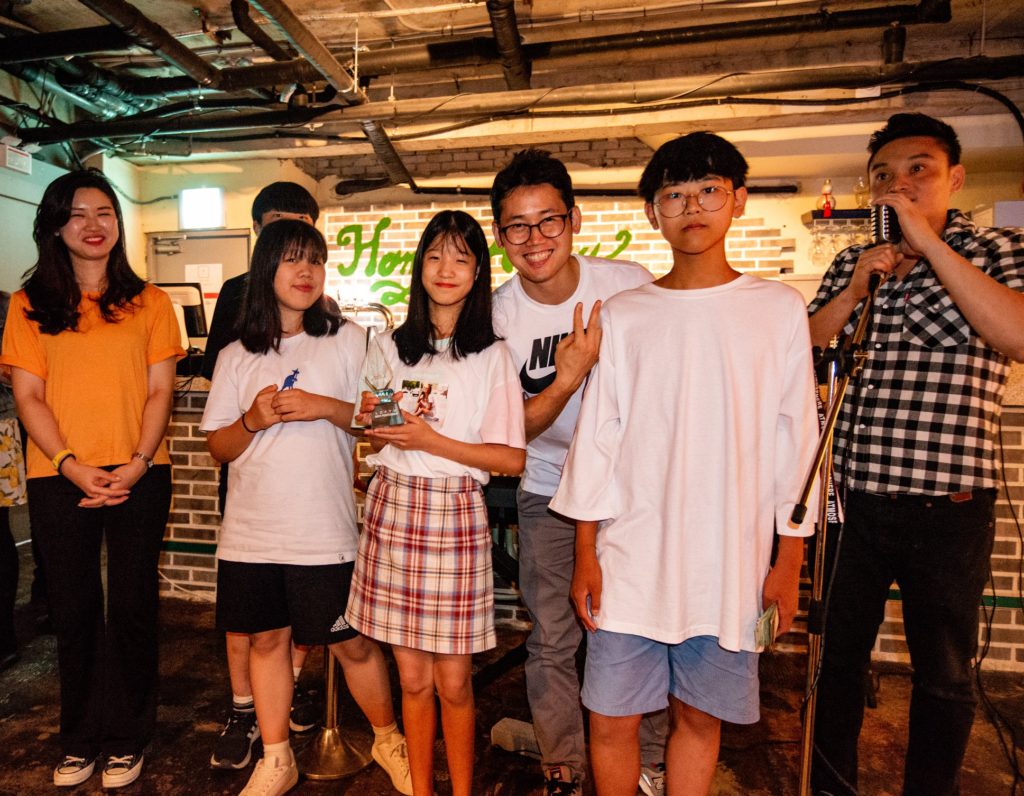
The foreign community here has always been the heart of our business as well as very supportive of our causes. But we have a lot of Koreans as customers, too. The main goal of our business is not to be only foreigner- or Korean-oriented; we want everybody to come and feel comfortable. Many of our Korean guests have also lived abroad or are familiar with living abroad for a short period, and they are more inclined to help. They understand the meaning of fundraisers.
Ronald Harford: We must always think in terms of the Korean market though, because we run a business here. But if we can manage to get, like, 50–50 group diversity coming in, I would call it a success. Koreans want to experience the foreign feelings and vibes, while foreigners who live here can also communicate more with Koreans because sometimes they isolate themselves with only a foreign crowd and fail to integrate more with Koreans.
GN: What aspect do you love most about your business?
Craig Anthony: Doing it with my family, with my cousin. We also have a great relationship with our staff, whom we consider family, too, and who have been with us since the beginning. We are here to integrate not only different cultures but everybody together and also to have fun while working. As I say, do what you love.

Ronald Harford: It has been like a family feeling and it is good. Each year we take time off with our staff to take a trip together, like team-building. We go to a pension, bring food to barbeque, take a walk on the beach, and basically spend good, quality time together as a family. For me, this is the great part: to be able to do this with coworkers who have become friends and are now so close that we can mention them as family members. We appreciate and help each other. It is great to have this kind of work environment.
GN: What are the main challenges in operating Loft 28?
Craig Anthony: Nothing really. I do not like to complain, but the hardest part would be starting, the paperwork, and the logistics. My advice would be, if you want to open a business as a foreigner, make sure you have a lot of Korean friends willing to help you.
Ronald Harford: For this year, I think the biggest problem was the consistency of the government regulations – like, you need to close now; or you can open this week, but then you have to close for another period; and so on. It was a bit of a hassle for us because most of the time we got the messages on really short notice, and we had, for example, events planned that we had to cancel. Of course, we are all learning from these situations, and I am sure the government has its own difficulties, too.
Craig Anthony: Yes, the communication between the government and business owners has been a challenge. What has been confusing for us is that the government would close certain businesses and allow others to remain open, and I refer here to the meaning behind it (we know that in accordance with the business license, one place can remain open or have to close). For example, they would decide to close a restaurant downtown that has live music, but across the street, there is another restaurant that does not have music and is packed with people and is allowed to remain open. We understand that closing is better for the community, and we have never argued about it, but sometimes when we have questions, it would be really be nice if we could get some answers, too.
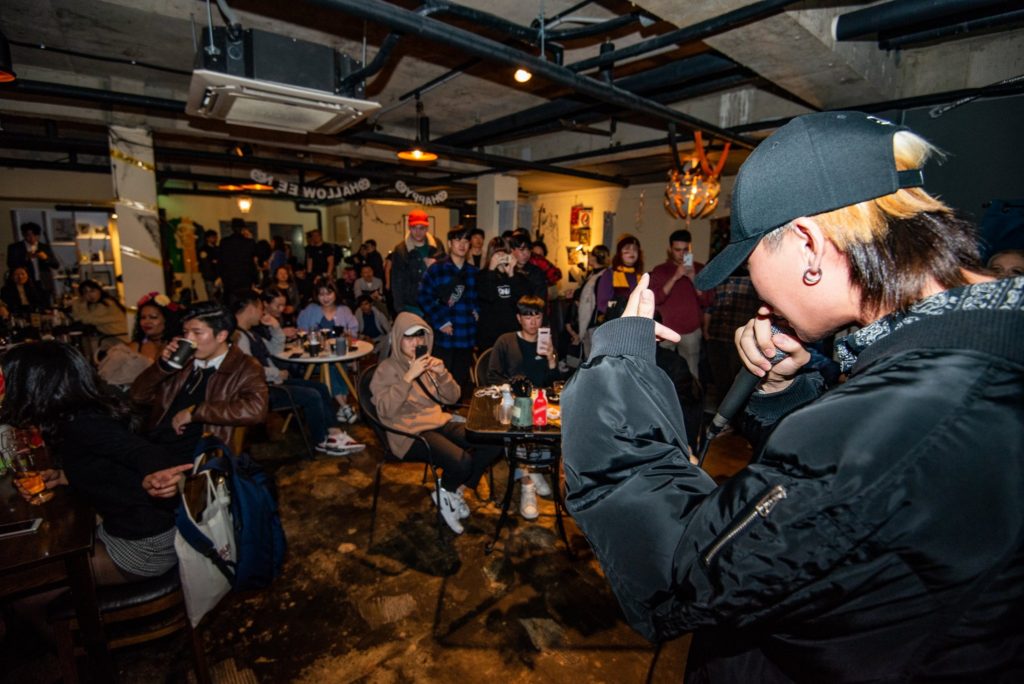
GN: What are your future business plans, especially since it looks like COVID-19 will be around for a while? And what are your thoughts on competition with similar places here in Gwangju?
Ronald Harford: We hope that we can continue what we are doing, and if these are the same hurdles that we will again face down the line, at least we are familiar with them now, and we can adjust to what we need to do. Also, more direct marketing for the chicken delivery is a consideration. We also see the situation as an opportunity to search for other places now that prices are going down for rents and many businesses are closing down. We are thinking about what we can expand, like maybe changing the location or expand to another area. With or without COVID-19, we are still thinking about opportunities and a second location in the future.
Craig Anthony: Related to the competition, we do not see other places as competition to us, especially when we are in another area. If they are doing well, we are doing well. The foreign community here is small, and there are only a handful of places where people can go to be amongst other foreigners. Actually, we do guide the newcomers to the rest of the places if they are in search of different cuisine or another ambiance. We always try to be positive and support the other businesses here.
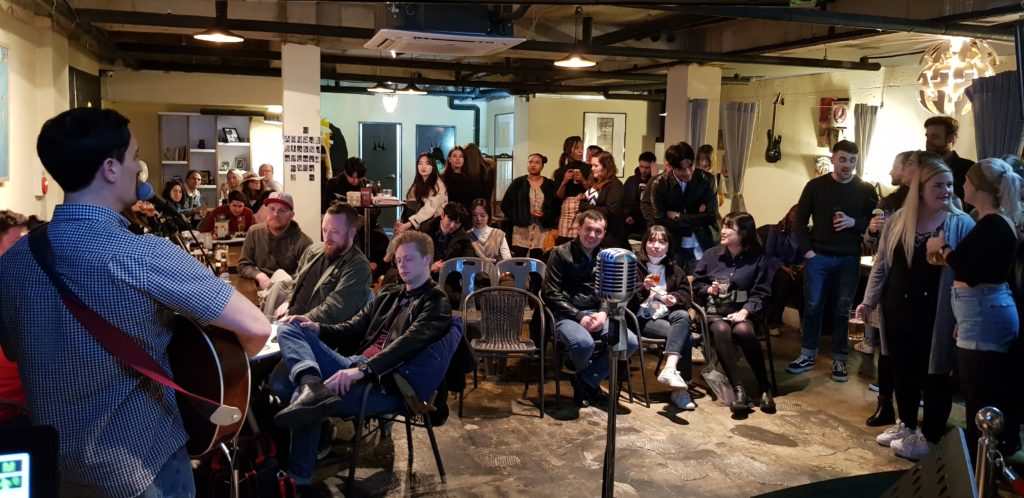
I think the aspect that is different at Loft 28 is our happiness in running it and joy of doing so with our friends and family. Of course, each business needs profit, but this is not the only aspect that matters. We do try our best to make Loft 28 a diverse place and make sure that everyone feels comfortable.
GN: Thank you, Craig and Ron, for your time and for a look into the operation of Loft 28 and the community work that Loft 28 is also involved in.
Photographs courtesy of Loft 28.
LOFT 28
Address: 79, Myeonang-ro 6-beon-gil, Buk-gu, Gwangju (Chonnam University backgate area)
Operating Hours: Daily 6:00 – 09:00 p.m. (at present, due to COVID restrictions).
Phone: 010-5586-6276; 010-8470-1221
Website: https://www.facebook.com/28loft28/
The Interviewer
Melline Galani is a Romanian enthusiast, born and raised in the capital city of Bucharest, who is currently living in Gwangju. She likes new challenges, learning interesting things, and is incurably optimistic. Her new addiction is the jerk chicken. Instagram: @melligalanis




